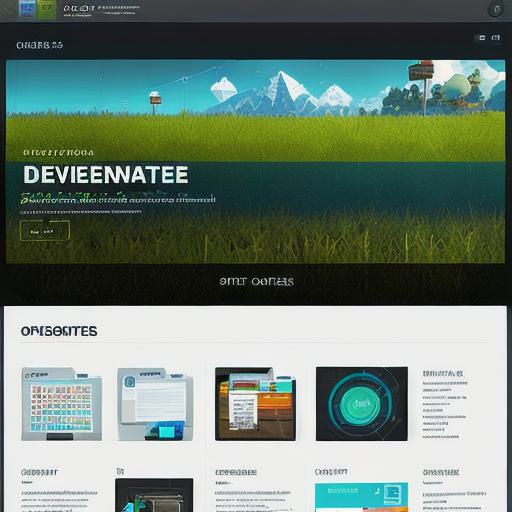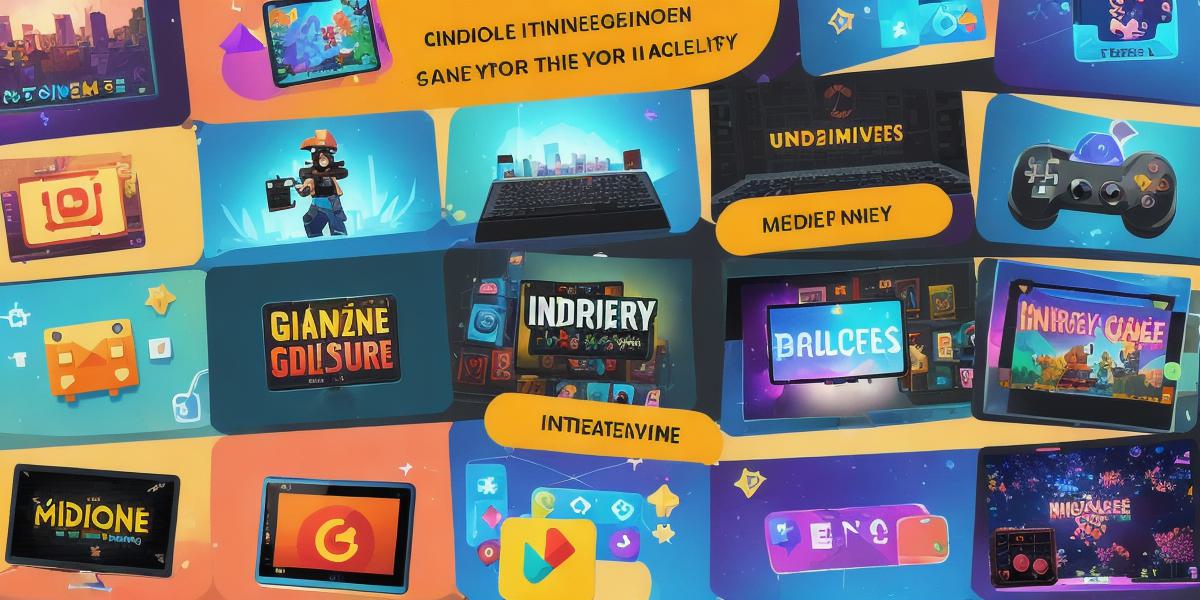Indie game development is a rapidly growing industry that presents both opportunities and challenges for entrepreneurs looking to start their own business. However, with the right planning and execution, indie game development can be a lucrative and rewarding venture. In this article, we will explore some of the key considerations and best practices for starting an indie game development business, including defining business objectives, conducting market research, developing a solid business model, allocating resources effectively, and measuring success effectively.
Defining Business Objectives
The first step in starting an indie game development business is to clearly define your business objectives. This includes identifying your target audience, determining the type of games you want to develop, and establishing a clear revenue model. By defining your business objectives upfront, you can ensure that your game development efforts are focused and aligned with your overall goals.
Conducting Market Research
Once you have defined your business objectives, it’s important to conduct thorough market research to understand the needs and preferences of your target audience. This includes analyzing the competition, identifying trends in the gaming industry, and gathering feedback from potential customers through surveys or focus groups. By conducting market research, you can develop games that are more likely to resonate with your target audience and generate revenue.
Developing a Solid Business Model
A solid business model is essential for the success of any indie game development business. This includes identifying your primary revenue streams, such as sales or subscriptions, and developing pricing strategies that are competitive and profitable. Additionally, you should consider alternative revenue streams such as advertising or in-app purchases to diversify your income streams and reduce risk.
Allocating Resources Effectively
Starting an indie game development business requires a significant investment of time, money, and resources. It’s important to allocate these resources effectively to ensure that your game development efforts are efficient and cost-effective. This includes hiring the right team, investing in the right technology, and prioritizing tasks based on their importance and impact on your business objectives.
Measuring Success
Effectively
Finally, it’s essential to measure success effectively to ensure that your indie game development business is on track to meet its goals. This includes tracking key performance indicators (KPIs) such as revenue growth, customer acquisition costs, retention rates, and engagement metrics such as time spent on site or app, bounce rates, and click-through rates. By measuring success effectively, you can identify areas for improvement and make informed decisions about the future of your business.
Sources of Funding

Potential sources of funding for an indie game development business include venture capitalists, crowdfunding platforms such as Kickstarter or Indiegogo, angel investors, grants, and bank loans. It’s important to carefully consider your options and choose a funding source that aligns with your business objectives and is feasible for your target audience.
Key Performance Indicators (KPIs)
Some key performance indicators (KPIs) that indie game development businesses should track include revenue growth, customer acquisition costs, retention rates, and engagement metrics such as time spent on site or app, bounce rates, and click-through rates. These metrics will help you understand how well your business is performing and identify areas for improvement.
Measuring Success
In addition to tracking key performance indicators (KPIs), there are several other ways to measure the success of an indie game development business. These include conducting regular surveys or focus groups with your target audience to gather feedback on your games and make improvements as needed, analyzing social media metrics such as likes, shares, and comments, and tracking website traffic and conversion rates.
Unique Selling Propositions (USPs)
Finally, indie game development businesses can differentiate themselves from their competitors by focusing on unique selling propositions (USPs). These include offering a highly innovative or niche game concept, using cutting-edge technology or game design techniques, partnering with well-known brands or influencers, or offering a unique in-game experience such as cooperative multiplayer or virtual reality. By focusing on these USPs, indie game development businesses can stand out in a crowded market and attract a loyal customer base.
In conclusion, starting an indie game development business requires careful planning, execution, and resource allocation. By defining clear business objectives, conducting thorough market research, developing a solid business model, allocating resources effectively, and measuring success effectively, indie game development businesses can set themselves up for long-term success. Additionally, by exploring various sources of funding, tracking key performance indicators (KPIs), analyzing social media metrics, and focusing on unique selling propositions (USPs), indie game development businesses can differentiate themselves from their competitors and attract a loyal customer base.



